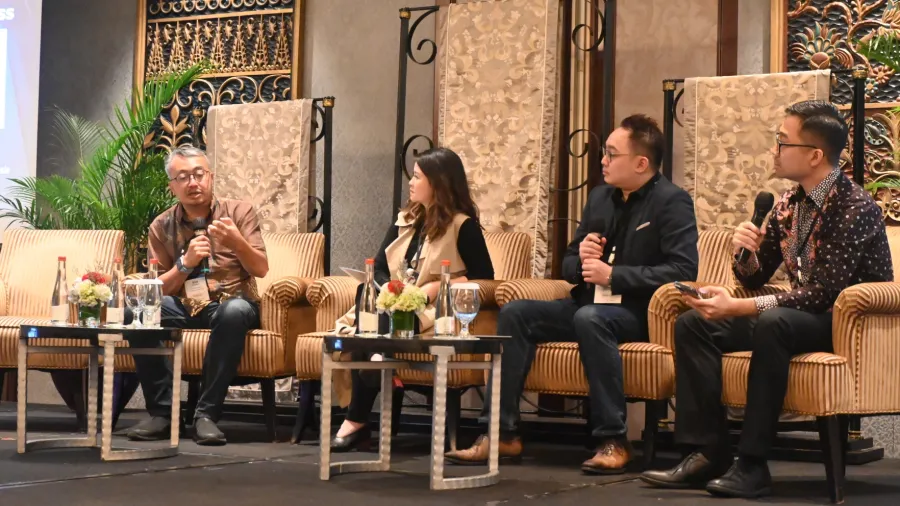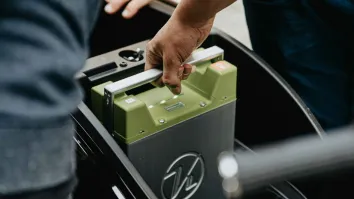
Embracing technology and personalisation drives e-commerce in Indonesia
3 retail executives compare notes on rapid tech-driven growth of e-commerce at Retail Asia Forum.
WITH e-commerce set to continue its rapid growth in Indonesia, a report by GlobalData predicts a 15.5% surge in the market for 2024, driven by a shift towards online shopping.
The market saw an 18.3% increase in 2023, reaching $37.6 billion (IDR 573 trillion), and is projected to hit $43.4 billion (IDR 661.9 trillion) this year, indicating the rising popularity of e-commerce amongst Indonesians.
This trend was echoed by Budi Primawan, vice chairperson of the Indonesian e-commerce association (idEA), who observed that the e-commerce landscape in Indonesia continues to evolve with shoppers increasingly accustomed to ordering goods online from anywhere.
“Similarly, SMEs can now sell without the need for a physical store,” Budi said at the panel discussion titled “Revolutionising Retail: Innovative Approaches to E-commerce Success” at the recent Retail Asia Forum in Jakarta.
The panel also discussed trends and strategies in e-commerce, including the use of the latest technologies to enhance shopper experiences and the competition between offline and online channels.
Amongst the distinguished panellists were Alfin Lie, vice president for Sales at Bhinneka, and Teresa Wibowo, CEO of Ruparupa (Kawan Lama Group). Along with Budi at the panel, the discussion was moderated by Reynard Praharsa, Chief Operation at MDI Training.
Personalised shopping
Budi, who is also the vice president for Government Affairs at Lazada Indonesia, brought across the crucial role of technology, particularly artificial intelligence (AI), in enhancing user experiences.
Since 2016, AI has been used in e-commerce, but its significant impact became apparent in late 2022 with the launching of ChatGPT. Budi explained that AI algorithms in marketplaces help display products relevant to consumers’ searches, making it easier for them to find what they need.
In on-demand services like food delivery from GrabFood or GoFood, backend technology combined with smartphones helps users locate nearby restaurants.
“Additionally, technology is used in logistics to assist with routing management for couriers, speeding up and simplifying delivery,” Budi said.
The GlobalData report indicates that the growth of e-commerce extends beyond major cities, with tier 2 and tier 3 cities experiencing significant e-commerce adoption, aided by improved digital infrastructure and logistics.
Teresa, CEO of Ruparupa, took the discussion to the implementation of new technologies to enhance the shopping experience.
As an e-commerce platform integrating various companies under the Kawan Lama Group such as Ace, Informa, and Toys Kingdom, Ruparupa offers an omni-channel experience with over 600 integrated stores.
By leveraging algorithms, machine learning, and AI, Ruparupa provides personalised experiences for shoppers, helping them find desired products more easily.
“Regarding technology for e-commerce, initially, we debated whether to buy or build,” recalled Teresa. “At Ruparupa, we initially bought technology but now have built our own to deliver hyper-personalisation. We can read (data) to determine which shoppers want to buy toys, tools, or furniture, and with the help of AI, we can direct them to find what they want.”
Bhinneka’s Alfin shared a different perspective. Bhinneka, which focuses on the B2B (business-to-business) segment, started as the first IT e-commerce platform in Indonesia and now serves both B2B and B2C (business-to-consumer) markets with products in IT, MRO, and solutions and services.
“In B2B, personalisation differs because the buying process is mandatory, so we adjust to how customers want to proceed. For instance, our customers often need quotations, so we offer an e-quotation feature for them to self-generate what they need to purchase,” Alfin explained.
Moreover, B2B customers require more payment options, not just cash. Thus, the company collaborates with financial services such as fintech to provide personalised payment terms for each customer.
“For example, some customers need longer payment terms, while others pay in cash,” Alfin said.
Offline and online competition
The panellists also covered the differences and competition between offline and online stores. Teresa noted that although there was initial concern about this competition, offline stores now benefit from online orders, reaching new customers in previously untapped areas.
Regarding price differences between offline and online, Budi explained that various factors influence prices, including store rental costs and shipping fees.
Alfin emphasised the importance of maintaining customer loyalty in B2B. To achieve that, “Bhinneka uses a combination of technology and human interaction to provide personal and credible service,” he said. It reflects their aiming for sustainable growth with a commitment to financial metrics, operational efficiency, and a customer-first spirit.
Towards the end of the session at the Jakarta forum, the panellists identified key future trends in e-commerce. Budi mentioned increased use of technology, advancements in logistics, and the growing need for shopping convenience as major trends.
For her part, Teresa said that personalisation, omni-channel seamless experiences, and live shopping will become important trends.
Alfin, on the other hand, stressed the importance of e-commerce players adapting, the significance of data as “the new oil,” and balancing online and offline experiences
Looking ahead, e-commerce is expected to continue its rapid growth, driven by technology and the need for a better shopping experience. The combination of technological innovation, deep understanding of customer needs, and market adaptation is key to staying relevant and successful in this industry.

















 Advertise
Advertise









